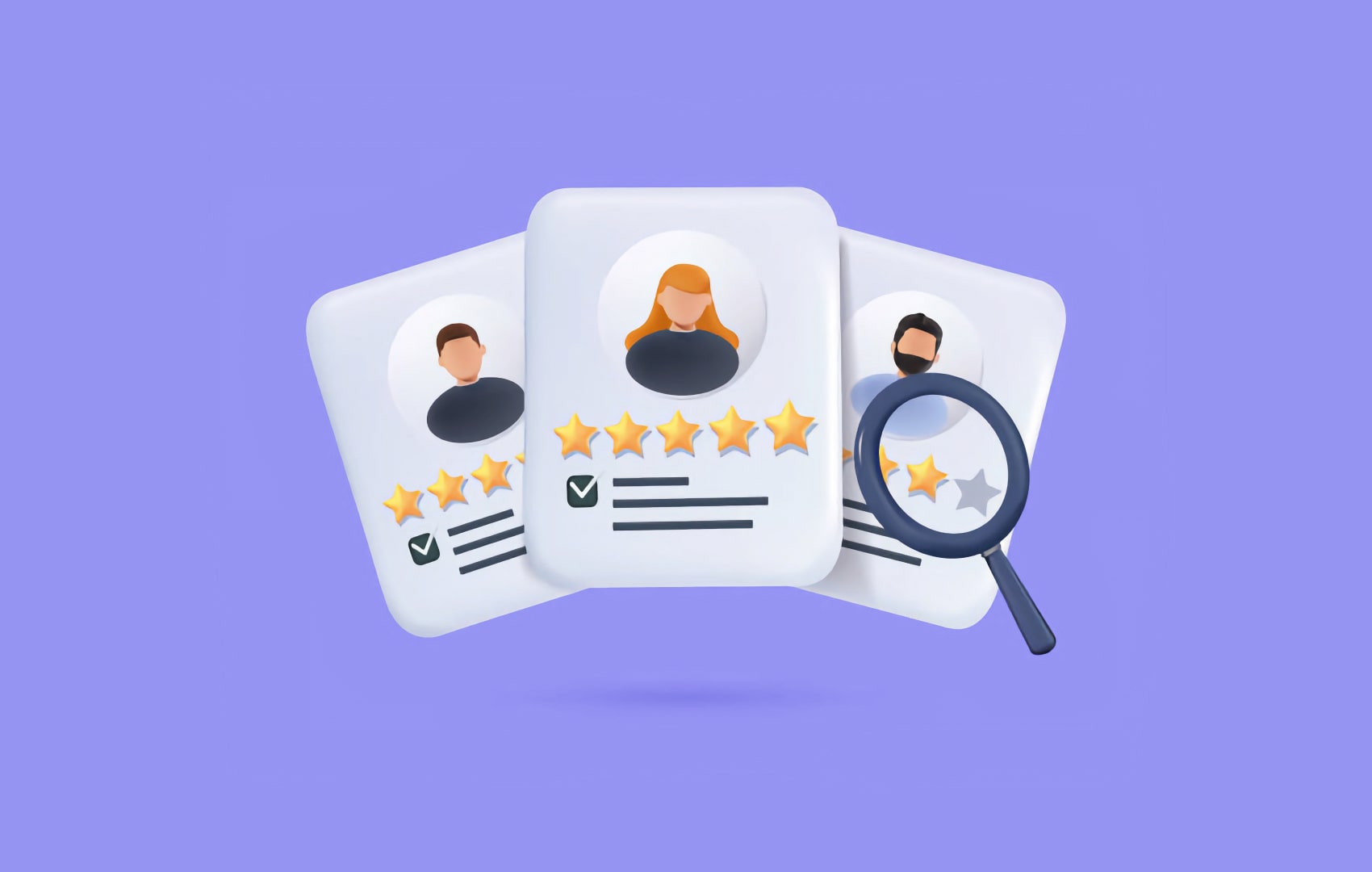How to Start a Digital Marketing Agency From Scratch

Welcome to the exciting digital marketing realm! In today's ever-evolving online landscape, businesses are recognizing the power of a strong digital presence, creating a massive demand for skilled marketers like you. If you've ever wondered about how to start a small digital marketing agency from scratch, now is the perfect time to learn!
This article will be your friendly guide in navigating the journey ahead. We'll break down the most common types of digital marketing agencies and talk about cost and essential tools. But more importantly, we’ll take the closest look possible at the steps in creating your marketing agency.
Consequently, we’ll look at how to choose a niche, business model, and pricing plan. Apart from planning, we will also talk about how to establish an online presence, build your dream team, and where to start with website development, blog establishment, and social media management.
Feels a lot, doesn’t it? No worries, we got you covered!
Types of Digital Marketing Agencies
In this section, we'll take a delightful tour through the different types of digital marketing agencies, giving you an insider's peek into their fascinating realms. Imagine stepping into a bustling marketplace filled with creative minds and strategic geniuses, each with their own unique superpowers. From social media maestros who know how to create buzz to SEO gurus who can skyrocket website rankings, the possibilities are endless.
By exploring these distinct agency types, you'll not only uncover the exciting variety within the digital marketing universe but also discover where your own agency's magic lies. Whether you choose to offer a comprehensive suite of services or specialize in a particular niche, understanding the different agency models will empower you to carve out your own space in this ever-evolving landscape.
Full-Сycle
Also known as full-service agencies, they are comprehensive powerhouses that provide a wide range of digital marketing services all in one place. They can handle literally everything:
Social media;
Management and content creation;
Website search engine optimization (SEO);
Different types of advertising;
Email marketing.
Obviously, full-cycle agencies are perfect for clients who want to hand off their entire digital marketing strategy and execution to a single agency. They provide end-to-end solutions, taking care of everything from initial planning and strategy development to implementing campaigns and performance tracking.
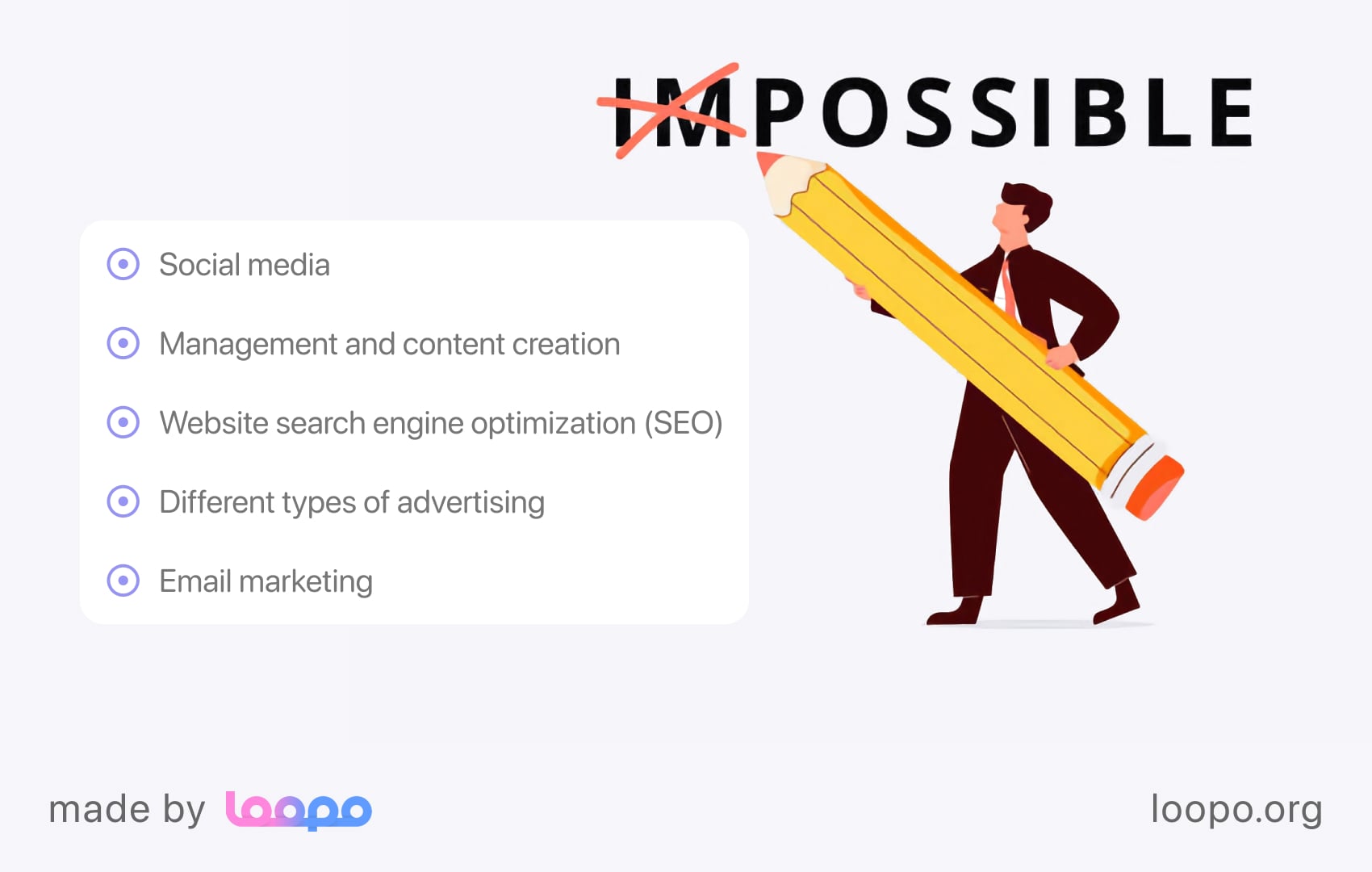
Single-Channel
Quite straightforward, single-channel agencies always focus on one specific channel or marketing discipline. They excel in areas like social media marketing, SEO, PPC advertising, or email marketing. Take a look at the image, for more understanding.
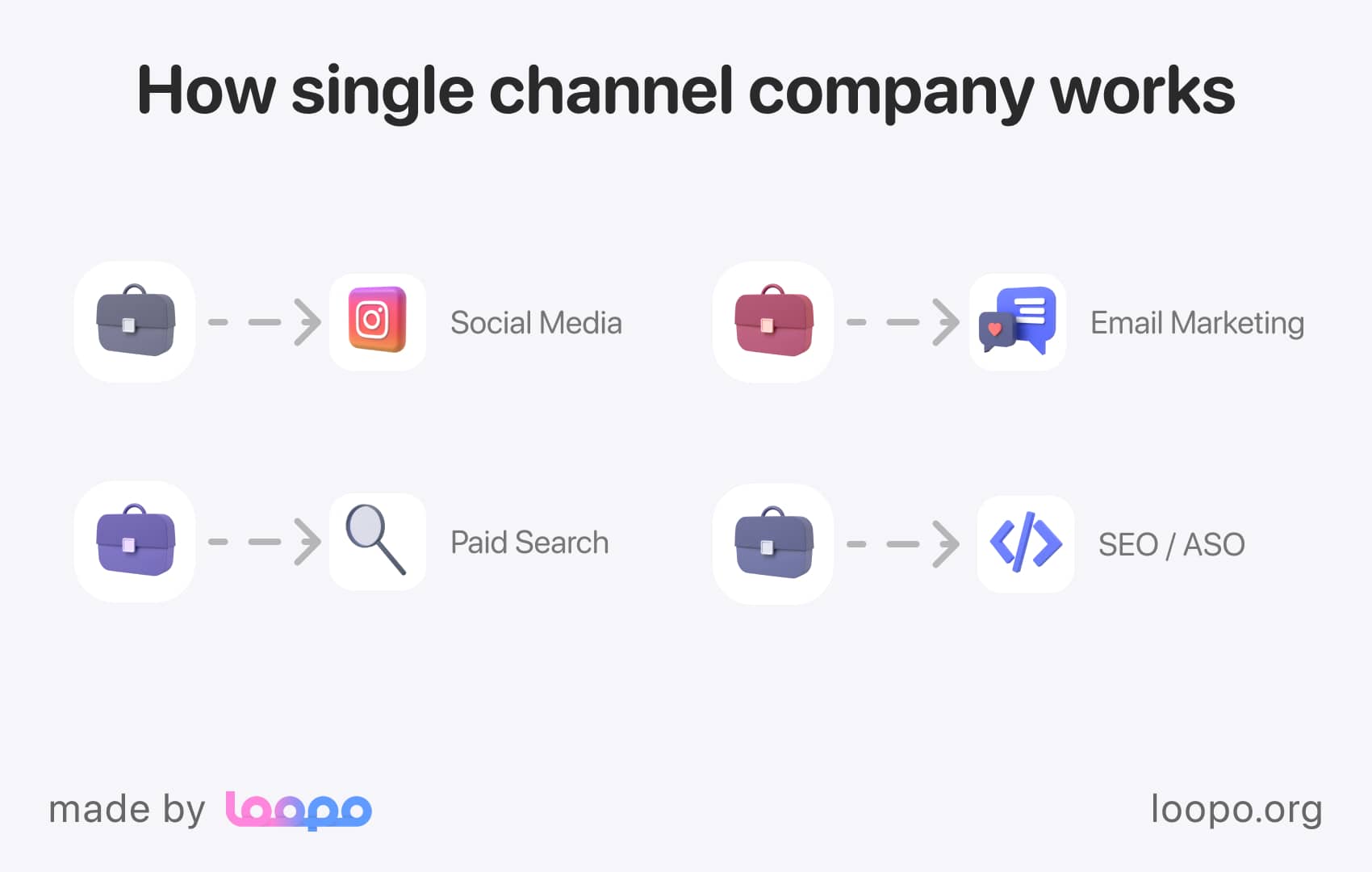
See how many marketing channels there are? Well, single-channel agencies focus only on one. But they make their job perfectly.
By focusing their efforts and resources on a particular channel, they aim at delivering the best quality possible, although very niched. They are the most suitable choice for clients seeking targeted services or aiming to strengthen their presence in a specific digital marketing channel Single-channel agencies offer valuable insights and tailored strategies to meet the unique requirements of that specific channel.
Multi-Channel
These agencies take a holistic approach, combining expertise in multiple digital marketing channels. They're like conductors of a symphony, orchestrating cohesive and integrated marketing campaigns across various platforms. With their understanding of how different channels interact and complement each other, they create comprehensive strategies that maximize reach, engagement, and conversions. Multi-channel agencies are ideal for clients who want a diversified digital marketing approach that covers multiple channels and touchpoints.
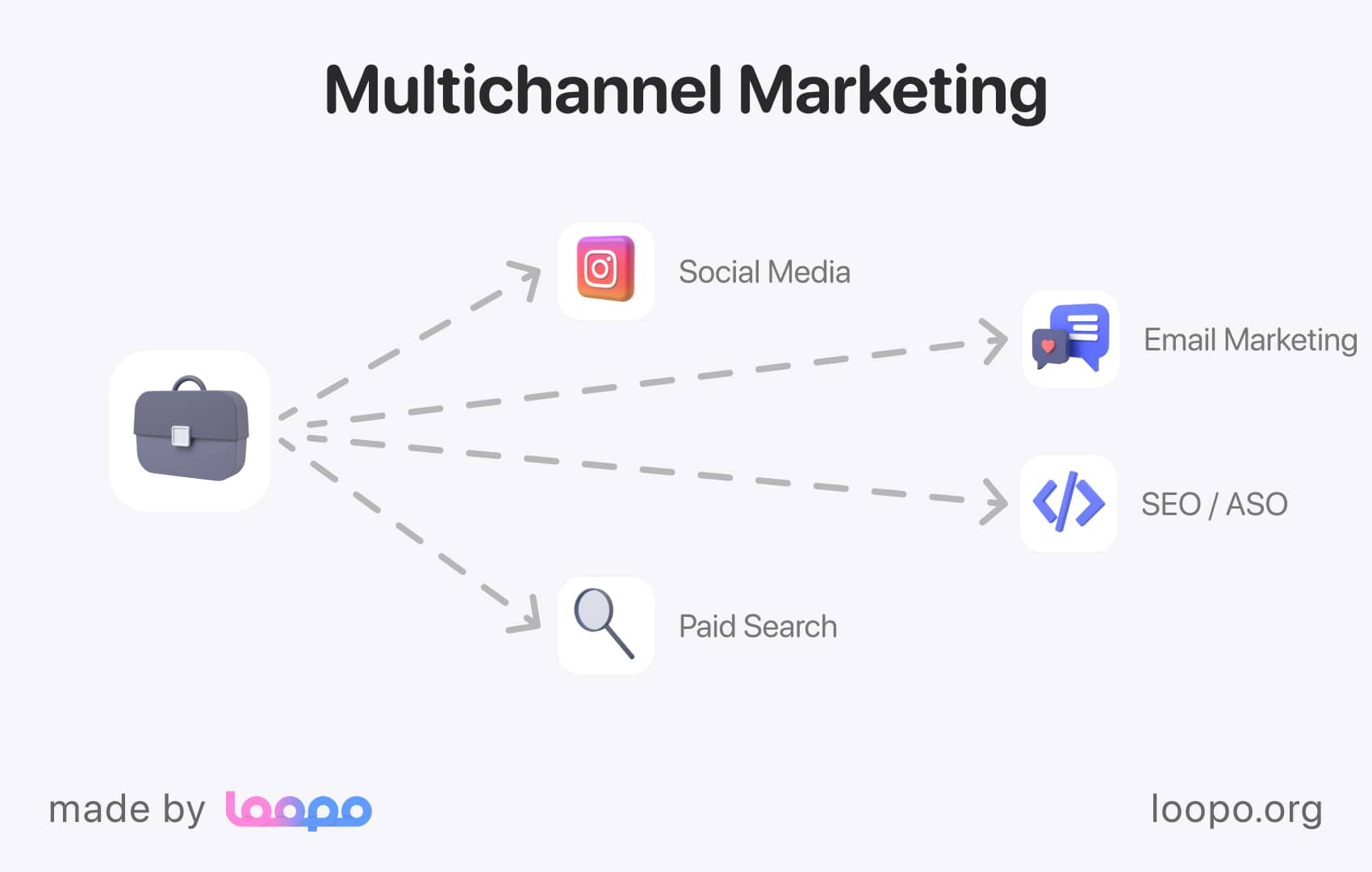
However, despite focusing on many channels, they are still far from full-cycle agencies. They cover broader areas of your marketing campaign, but still heavily rely on cooperation with an owner.
After all, let’s summarize those types in a neat table. This way, it’ll be easier to memorize, take a screenshot and then make a moderate decision.
| Aspect | Full-Cycle Agency | Multi-Channel Agency | Single-Channel Agency |
| Scope | Offers a wide range of services | Offers multiple marketing channels | Specializes in a specific channel |
| Services | Complete marketing solutions | Diverse marketing campaigns | Focused services for one channel |
| Expertise | Knows a lot about various marketing areas | Versatile in implementing channels | Deep understanding of one channel |
| Client Engagement | Handles your entire marketing strategy | Manages campaigns across channels | Manages campaigns within one channel |
| Resource Allocation | Can handle multiple tasks at once | Allocates resources to multiple channels | Dedicates resources to one channel |
| Client Base | Appeals to clients seeking all-in-one solutions | Attracts clients looking for diverse strategies | Serves clients seeking niche expertise |
| Scalability | Can grow or shrink based on your needs | Adapts to include new channels | Limited scalability within one channel |
| Complexity of Operations | Handles complex integrated marketing efforts | Coordinates multiple channels and campaigns | Focuses on one channel, less complexity |
| Performance Measurement | Tracks performance across various marketing areas | Measures effectiveness of multiple channels | Measures success within one channel |
Steps to Start a Digital Marketing Agency
In this section, we will take you through how to start a digital marketing agency step by step. We’ll cover many useful aspects you’ll definitely stumble upon on your way. Let's dive in and make actual steps toward your digital marketing agency!
Decide Your Agency Type and Niche
Figuring out your agency type and target niche early on can help you a lot. Knowing what you do best can help you find clients, and deliver the best quality work.
Based on your strengths, market research, target audience, and resources, decide on the type of agency that suits you best. You can opt to be a full-cycle agency, focus on a single channel, or adopt a multi-channel approach.
Regarding niches, it is a more vague topic, actually. Still, you can try different industries for some time. See where’s the more suitable environment, which industry generates more leads, and where you’d simply like to grow.
Lastly, you must be in your element. It means that you should have the best possible expertise in the niche you choose. During the early development stages, as a founder, you will be the one communicating with clients and attracting new ones. Therefore, you can outline the most popular questions you will be asked. For instance, how much time it takes to finish certain tasks, how many people are required for efficient work, and many others.
Considering this aspect, you can build trustworthy relations with your clients and represent your agency professionally, ready to answer any challenges.
Develop the Right Business Model
First off, let’s talk about which business models are there to choose from. We’ll cover four main ones you should definitely know about. To avoid clutter though, let’s compose a table.
| Model | Description | Pros | Cons |
| Fixed price model | Clients pay a fixed fee for a specific set of services. | Predictable revenue stream | Potential for under or overcharging based on the scope of work |
| Hourly rate model | Clients are billed based on the agency's hourly rates. | Transparent billing based on actual time worked | Clients may perceive it as an unpredictable or open-ended cost |
| Performance-based model | The agency's compensation is tied to campaign performance. | Strong incentive for delivering results | Risk for the agency if campaign performance falls short |
| Commission-based model | The agency earns a percentage commission on generated sales. | Directly aligned with the client's success | Revenue can be inconsistent, relying on the client's sales |
With a proper understanding of the model types, it gets easier to figure out which one suits your agency more. When it comes to selecting a business model, it's all about finding the right fit based on factors like the agency's strengths, client preferences, and project requirements.
Agencies often get creative by blending different models to create a unique and tailored approach that perfectly matches their specific needs and satisfies their clients' demands. Speaking from our experience though, creative and digital agencies prefer either fixed price or hourly rate models.
Plan Your Pricing
Proper pricing planning is closely connected to the business model choice we talked about a minute ago. It is extremely important to choose the right pricing plan and here’s why.
It helps optimize profitability. Creating a smart pricing strategy is key to boosting a business's financial success. It's not simply about charging the highest price imaginable, but rather finding a strategic balance that helps attract customers, gain a competitive edge, and keep them coming back for more.
It helps to compose an appropriate customer base. Price has a big impact on how people perceive the value of a product or service. If something is priced higher, it can create a sense of luxury or exceptional quality, especially among certain customer groups. On the other hand, a lower price might give the impression of affordability, but it could also be seen as less valuable. So, pricing is like a smart strategy that helps attract the right customers while gently guiding away those who may not be the best fit.
It drives growth. When it comes to growing business, you should often focus on acquiring new customers. However, let's not underestimate the power of pricing as a growth driver! It's truly amazing what a small adjustment in pricing can do. In fact, according to a study by the renowned consulting firm McKinsey, a mere 1% increase in pricing can lead to an incredible 8.75% increase in profits on average. Isn't that incredible? It just shows how implementing clever pricing strategies can make a significant impact on the growth of your business.
Apart from planning the pricing, you should also care about financial management. If you think about it, every agency operates with huge amounts of money, where some are salaries, taxes, recurring subscriptions, etc.
Hence, make sure you take care of your financial management. When building a team, always think about accounting specialists, or even a financial department that will handle the economical aspect of your business. Besides, it’s always good to have tools, tables and other stuff that can simplify this burden.
Establish Your Web Presence
Building your brand online is a very complex task. So, let’s describe it in steps!
Start developing your website
Have you ever been to a cafe with a poor interior but extremely tasty food? Everyone has, at least once. The point is, no matter how delicious the food is, simply imagine how many people got scared away by that interior.
That’s the point!
Your website is basically the starting point of your client’s journey with you. It’s the place where they observe your agency’s work, contact you, and learn about the services you provide. Therefore, it must look as ideal as possible. Here are a few tips to encourage you.
Make it fast and performant. According to the statistics, around 40% of people simply leave the site if it loads more than 3 seconds!
Don’t make it complicated. Please… No need for enormous amounts of buttons, CTAs, and pages. You must work on driving natural interest with catchy design and curious headlines instead.
Showcase your work. Do not rely solely on Behance, Dribbble, or other platforms. Create a separate page on your own website, where you’ll showcase your experience the way you like it! Other platforms should be supplementary, whereas your case studies page should be the center of your client’s attention.
Don’t forget about social media
Platforms like Facebook, LinkedIn, Twitter, and Instagram are the greatest aggregators for your to share your work, share agency life, and even generate leads. Clients often check these platforms before making a decision, so make sure everything looks professional and polished.
Register directories
Apart from regular social media, you should also create accounts on platforms like GoodFirms and Clutch. They provide more professional and serious approach on rating companies’ and agencies’ services. It is always a good idea to keep them updated as they can be of great help to attract new leads.
Create Your Processes
Processes simply mean having clear and documented steps, known as standard operating procedures (SOPs), for each task you perform. This includes the client onboarding process and the services you provide. Why establish everything so strictly?
To save time, of course! You'll save yourself a hell lot of precious time in the future when explaining how you want your team to handle client work.
Take advantage of your current experience working with clients and dedicate some time to creating email templates, proposal templates, custom reports, and checklists that anyone can follow to complete tasks efficiently. Keep things straightforward and avoid making them overly complex. You can easily create these processes using user-friendly tools like Google Docs and Gmail, organizing them neatly in folders for easy access.
By setting up your processes early on, you'll be well-prepared to bring new team members on board smoothly and streamline your agency's operations as it continues to thrive.
Build Your Digital Marketing Team
Recently, we did a great job putting together a vast variety of specialists that can be in a digital marketing team. It is extremely important to select the right people for your team, especially at the beginning of your way. You have to be careful choosing people who will be by your side because starting from scratch can be challenging. For convenience, here’s a quick reminder which specialists are quite common in marketing teams.
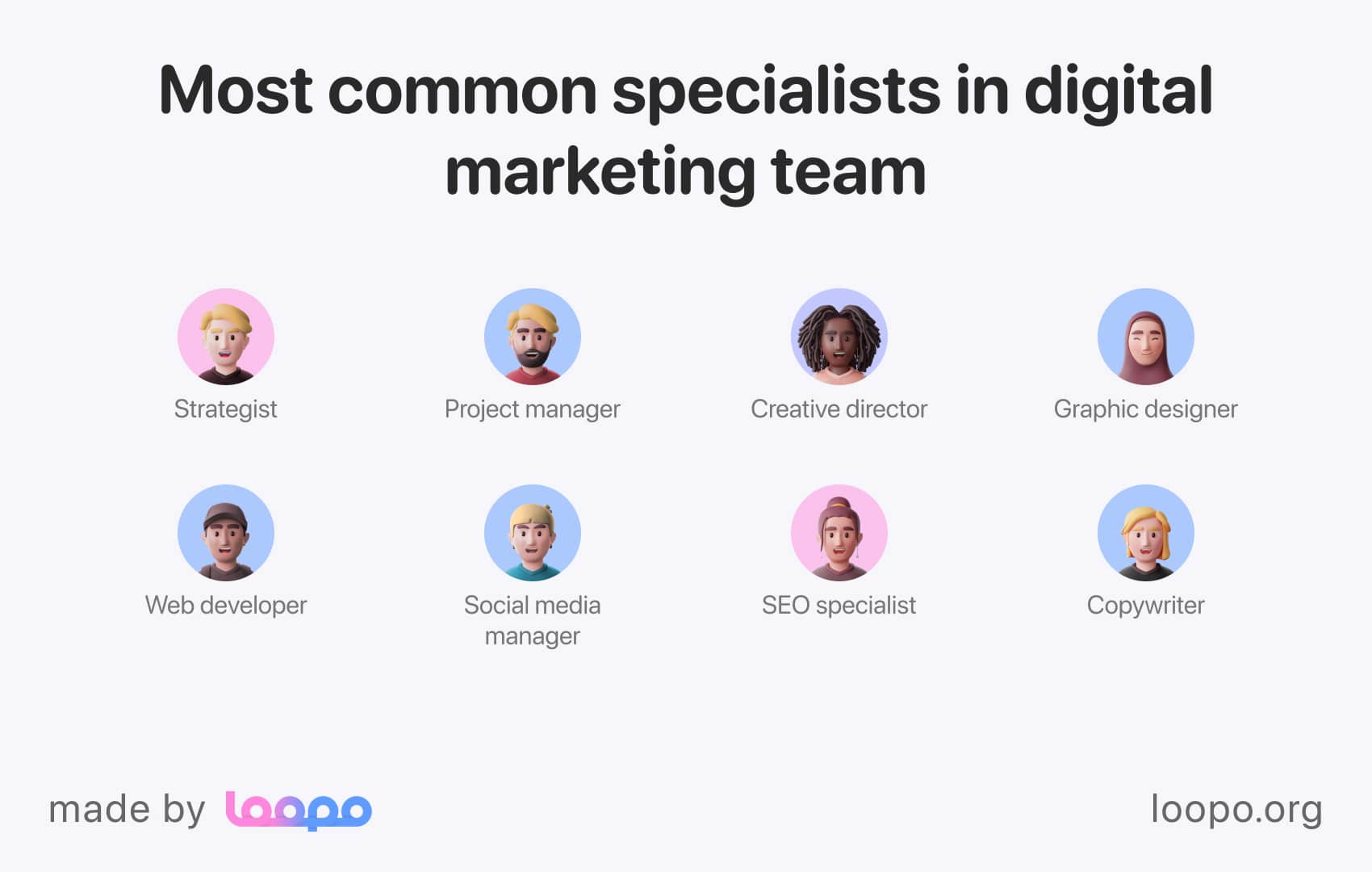
Strategist: a guy who aligns the teamwork with the client’s requirements;
Creative director: the one who manages all processes, brings ideas, and approves others;
Project manager: a specialist who coordinates the teamwork, manages deadlines, tasks, and other stuff;
Copywriter: a guy who composes branding messages, posts, articles, etc with plain words and imagination;
SEO specialist: the one who optimizes the site making it rank higher in search results;
Graphic designer: a specialist who creates a visual representation of the brand;
Web developer: puts others’ ideas into the website making it performant, UX friendly, and neat;
Social media manager: a specialist who manages publications, creates posts, and tracks their performance.
Obviously, such short descriptions are not enough, not even close. Hopefully, we have an article just about it!
Register Your Business
It's really important to register your agency as an official business, especially when you're trying to make a name for yourself online. Yes, we know, it’s boring as hell.
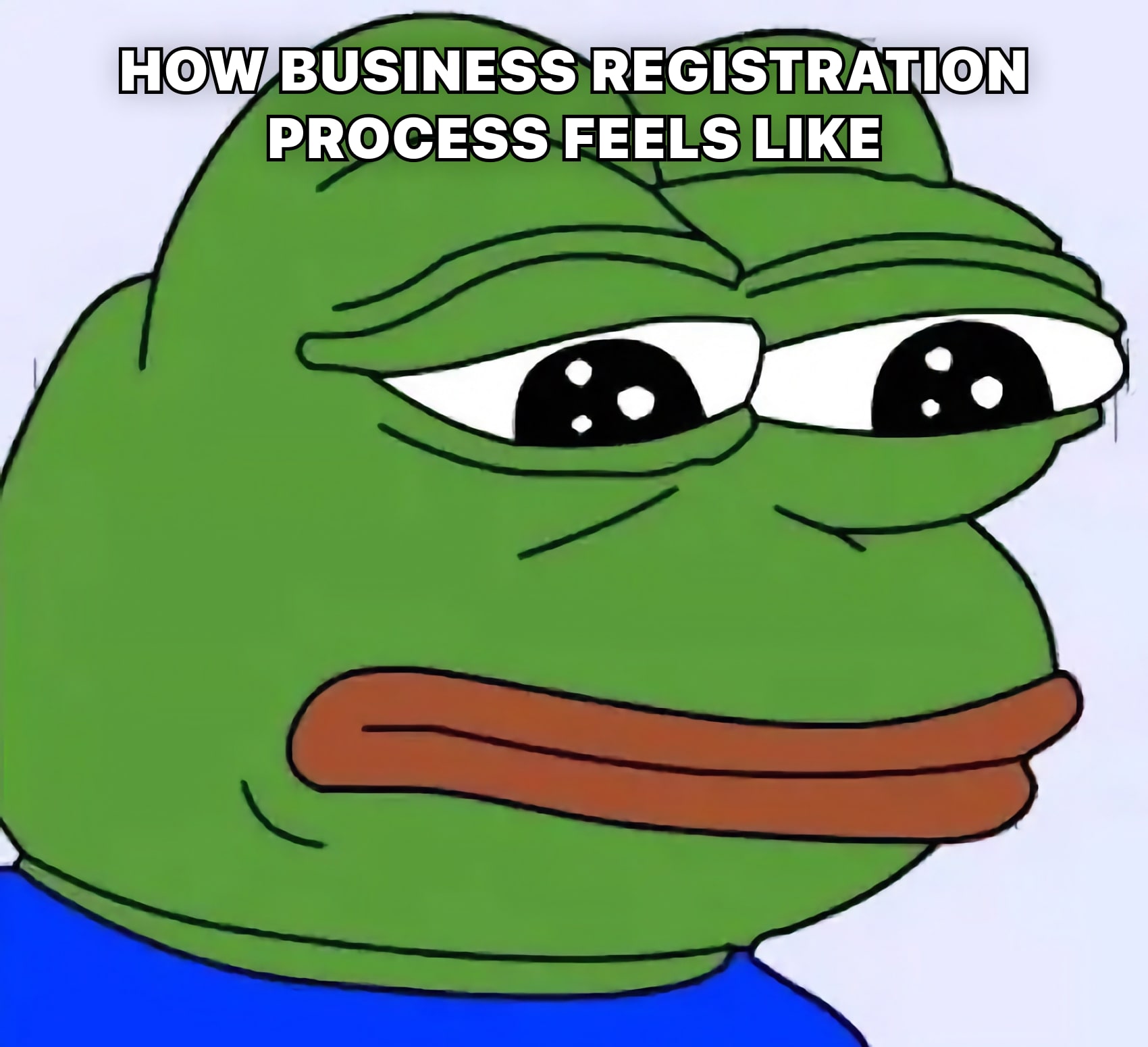
But, by doing so, you'll have peace of mind knowing that you're operating within the rules and regulations set by the government, which will definitely help you earn the trust of potential clients.
Even if you're already registered as employed or self-employed, it's worth considering registering as a Limited Liability Company (LLC) for some great benefits. Not only will you enjoy tax advantages, but you'll also boost your credibility and have legal protection in case anything goes wrong.
Speaking of taxes, it's a good idea to hire someone to take care of your agency's tax matters. Don't worry, you don't have to break the bank for this! There are numerous ways to find professionals that will manage your financial aspect. You can even try looking on platforms like Fiverr or Upwork!
Cost to Start a Digital Marketing Agency
Remember, predicting things is a bad habit. Creating a digital marketing agency from scratch is complex and the price of such an adventure varies a lot. Nonetheless, we’ll try to look at some real numbers, although approximate. For more understanding, let’s divide the entire cost into subcategories.
Getting Started
This point includes everything you need to set up the company even before its first work day. It includes licensing, LLC setup, trademark registration, and everything in between. Apart from these, there are other expenses. The major ones are:
Registering your business and legal fees: $500 - $1,500
Securing a domain name and website hosting: $50 - $500
Gathering office supplies and equipment: $500 - $2,000
Operational Expenses
Quite self-explanatory, operational expenses are things you need to invest in to make the whole mechanism work. Most often, such expenses include:
Renting an office space or coworking: $2,000 - $5,000 per month (depending on your country, location, city, and even city district).
Building your team or hiring freelancers: Costs can vary based on experience and expertise. Their services typically range from $2,000 to $10,000+ per month.
Software and tools: $100 - $500 per month (depending on the tools you choose)
Lead generation process: $500 – $5,000 per month (depending on the scope of your marketing and sales tools)
Additional Expenses
These costs are dedicated to additional stuff you may need along the way. It includes anything that can’t fit into operational expenses, like:
Professional services (accounting, legal, etc): $500 - $2,000 per year
Insurance coverage: $500 - $2,000 per year
Training and certifications: $1,000 - $5,000 per year (depending on the number of employees and certifications pursued)
Overall, starting a digital marketing agency can range from approximately $5,000 to $50,000 or more. Remember, these numbers are just estimates, and it's crucial to create a detailed plan and budget that suits your specific goals and needs.
Moreover, there’s always room to create an inspirational success story! For instance, with a deep study, market research, remote work type, and advanced optimization, you can even start with a budget of $150 - $200 dollars and gradually grow. After all, it is only about proper management and a clever approach to the business.
Tools to Run A Digital Marketing Agency
After you wondered how to start a remote digital marketing agency, you may be interested to know about the tools you need to successfully manage your creation. In this matter, you'll need more than just your trusty keyboard and caffeine-infused beverages. In this section, we’ll take a look at the tools you need to run an agency and do it nicely.
Task manager
There are plenty of them: Asana, Monday, Trello, Todoist, etc. Each has ups and downs, but still, they’re trusted by millions of teams around the globe. Let’s think about what a proper task manager should have.
Firstly, a dedicated workspace where you will be able to manage all your publications, plans, and tasks.
Secondly, a neat UI/UX design to make your daily working routine pleasant.
Thirdly, a way to save and/or collect imagery, files, and analytical data is needed in work.
Lastly, you will need a place to:
handle postings,
create technical tasks,
add notes,
set deadlines.
Do you know what is just the right tool for this job? Loopo, of course! With Loopo, you can easily do all of the above and even more. With the recent Loopo AI introduction, you can greatly simplify your work with a neat Open AI integration right in your workspace. Don’t believe us? See for yourself!
CRM
First off, CRM stands for Customer Relationship Management. It is like a dynamic trio of practices, strategies, and technologies that companies rely on to master the art of customer interactions.
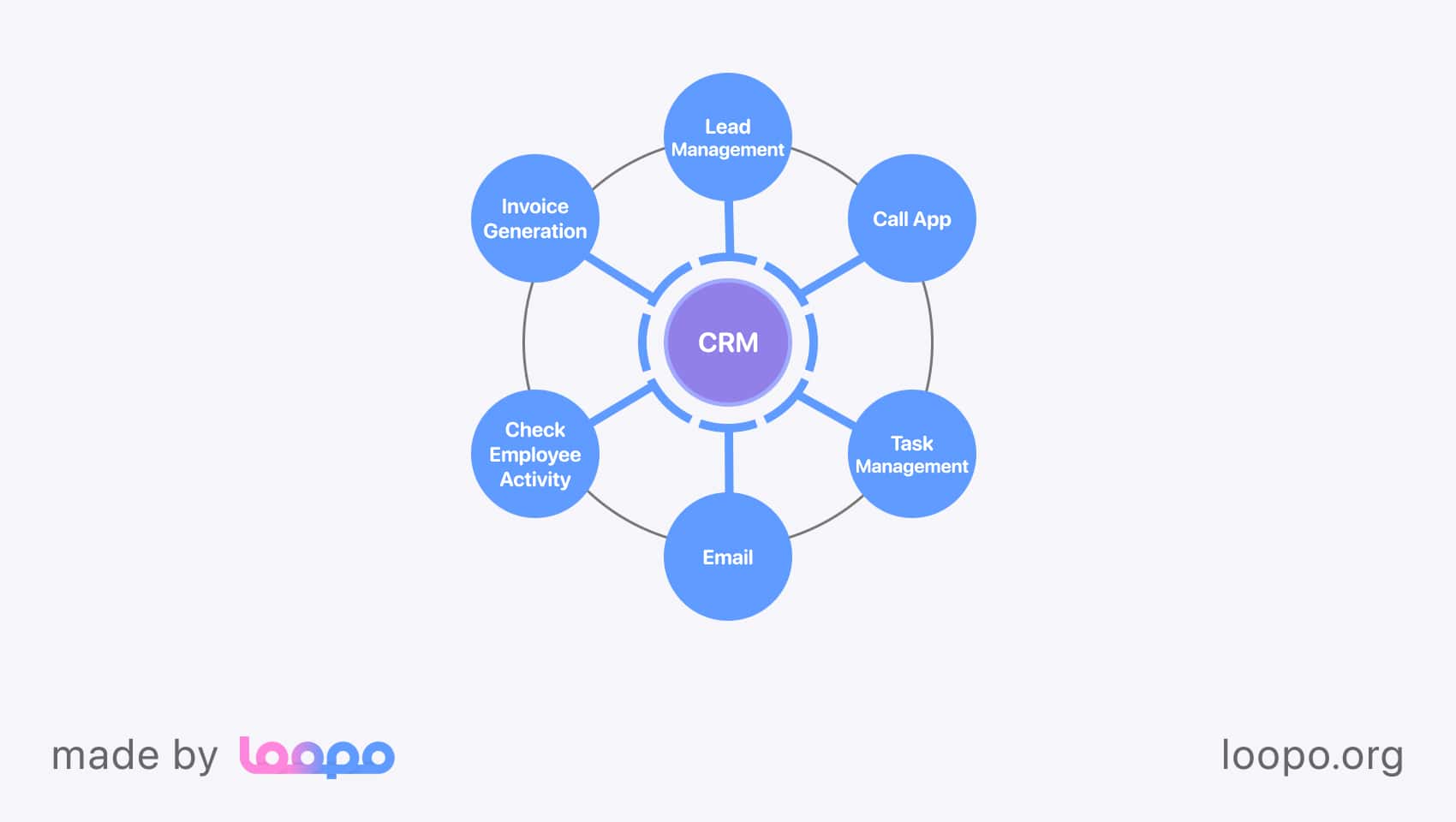
Its main mission is to supercharge customer service, boost loyalty, and fuel sales growth. By harnessing the power of CRM systems, businesses gather and analyze customer data from various touchpoints like websites, phone calls, live chat, emails, marketing campaigns, and even social networks.
This information empowers customer-facing teams with insights into personal details, purchase history, preferences, and concerns. With CRM by your side, you can create lasting connections and deliver exceptional experiences that keep customers coming back for more.
The most popular CRM options on the market are HubSpot, Zoho, SalesForce, and Zendesk.
Google Apps
Needless to say how irreplaceable Google products have become in our professional life. First of all, there’s an eternal Google apps trio every single company on planet Earth uses.
Google Sheets. They allow you to operate with numbers, create sheets, and tables and calculate everything with advanced formulas!
Google Docs. This’ll hold the basis of your company, we promise! It is extremely comfortable to keep the documentation, reports, and any kind of operational documents.
Google Slides. That’s the place where you create presentations. It has solid functionality, advanced animations, and is highly flexible!
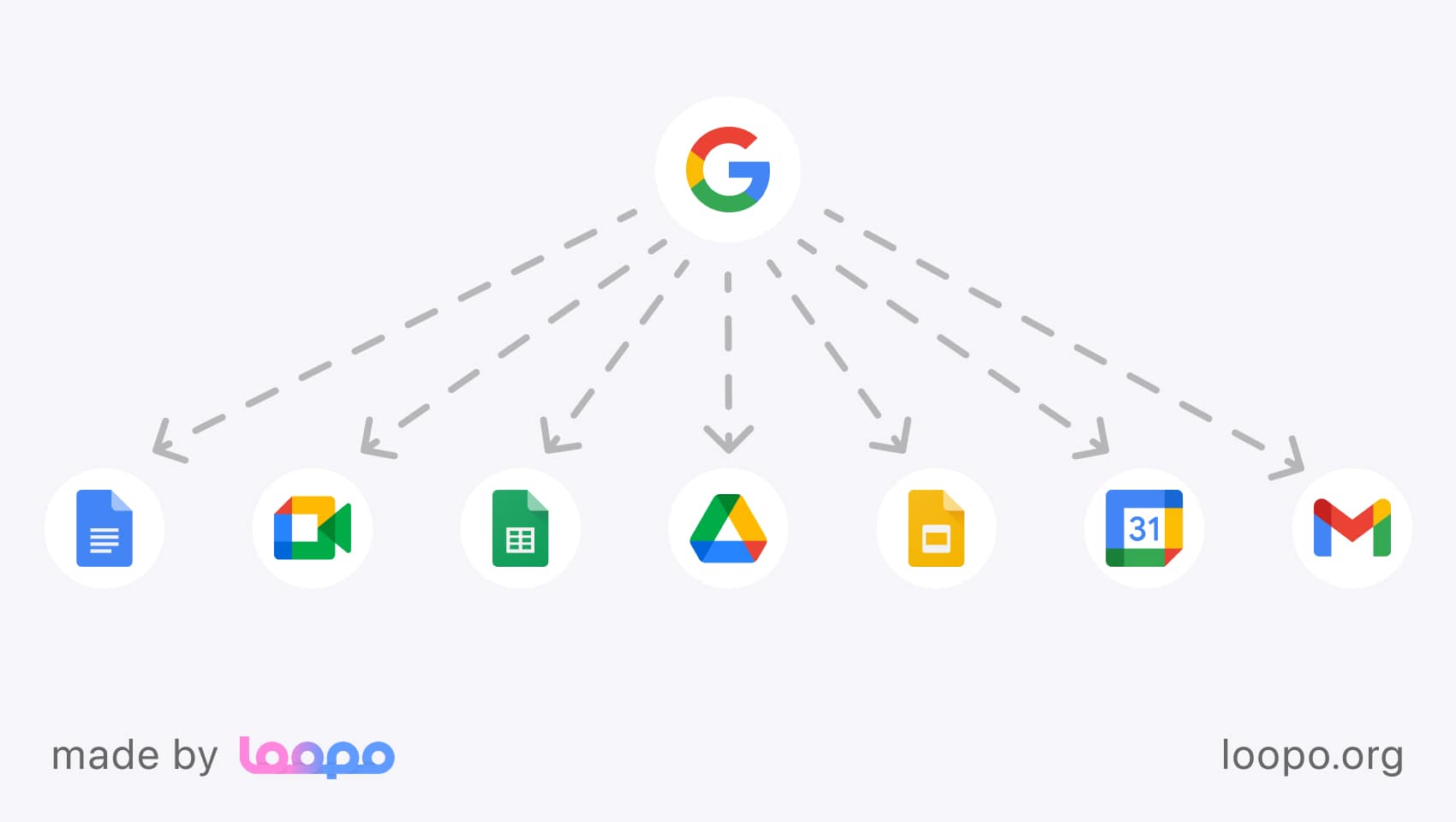
Besides, Google has other quite handy tools. For instance, Forms allows you to create questionnaires. Every company needs them, you know that.
Another good thing to use is Calendar and Meets. The first one creates room for a daily planning routine while the latter provides functionality to organize video calls.
Last but not least, Google apps are synchronized, making them irreplaceable, really. Needless to say how comfortable it is when the whole company uses the same software. It allows you to find things quickly and organize your work quite efficiently.
For example, Calendar and Meets are mutually synchronized allowing you to schedule calls and receive invitations via your Gmail. Google Drive allows you to conveniently store your docs, sheets, and presentations conveniently. Overall, make sure you use them, they are worth it!
Analytics Tools
Managing numbers, performance, and other important metrics of your agency are difficult. We know that you know that everybody does. However, it’s a vital aspect to track your performance, especially when you make your first steps.
That’s why we collected several cool examples of analytical tools you may find useful along the way!
Google Analytics
Seeing another Google product is nothing unusual. Google Analytics is a super helpful tool! It gives you all sorts of cool data and insights about how your website is doing and what your visitors are up to. You can see real-time reports, customize it to fit your needs, and even track your online sales.
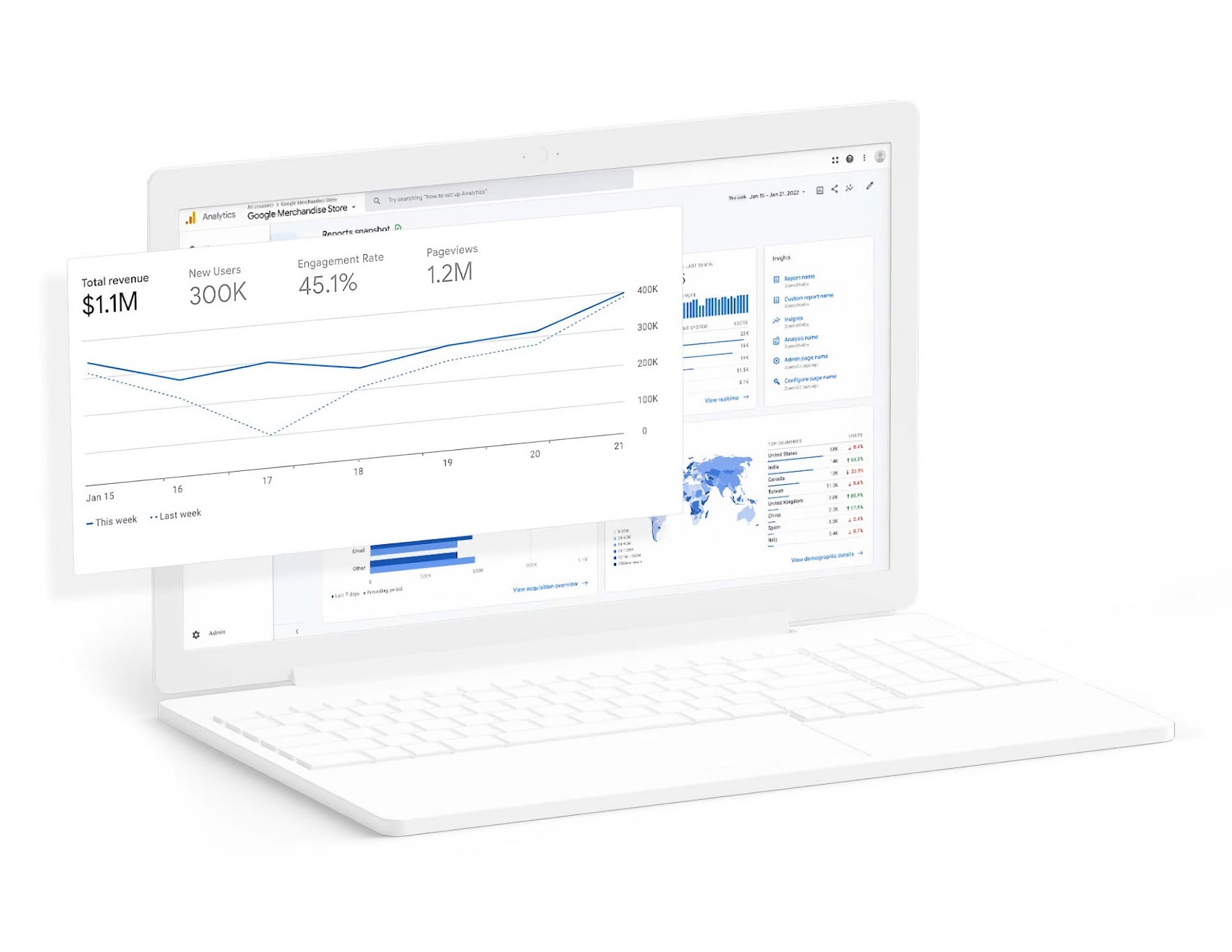
Plus, it plays well with other Google tools! It's awesome because it helps you make smart decisions and create a better experience for your website visitors. For a clearer picture, here are its pros and cons.
Pros:
Regular updates. It’s Google’s product, people! Of course, it will be properly managed and updated to fit today’s needs.
Manages several websites. Really! It has the possibility to add several companies under your Google account and manage them all conveniently switching between the tabs.
Simple to set up. If you have experience building a website or even working with WordPress, connecting Google Analytics to your product will be surprisingly simple.
Free access. After all benefits and extremely useful features, it’s unbelievable Google Analytics is completely free. Being one of the best analytical tools, you can it solely without a great need for anything else.
Cons:
Complexity. Everything analytics-related tends to be complicated. Google provides an extremely advanced tool to manage every single bit of information available. It’d be silly to not expect it to be complicated.
Data sampling. Given the idea that Google operates with millions of websites every single second, there are always limitations. To economize resources, data sampling comes into play, allowing Google to analyze only a part of your website and apply the received results to other aspects it didn’t analyze.
Sprout Social
It's one of the best social media analytics tools out there! With Sprout Social, you can manage your social media presence and track your performance with ease.
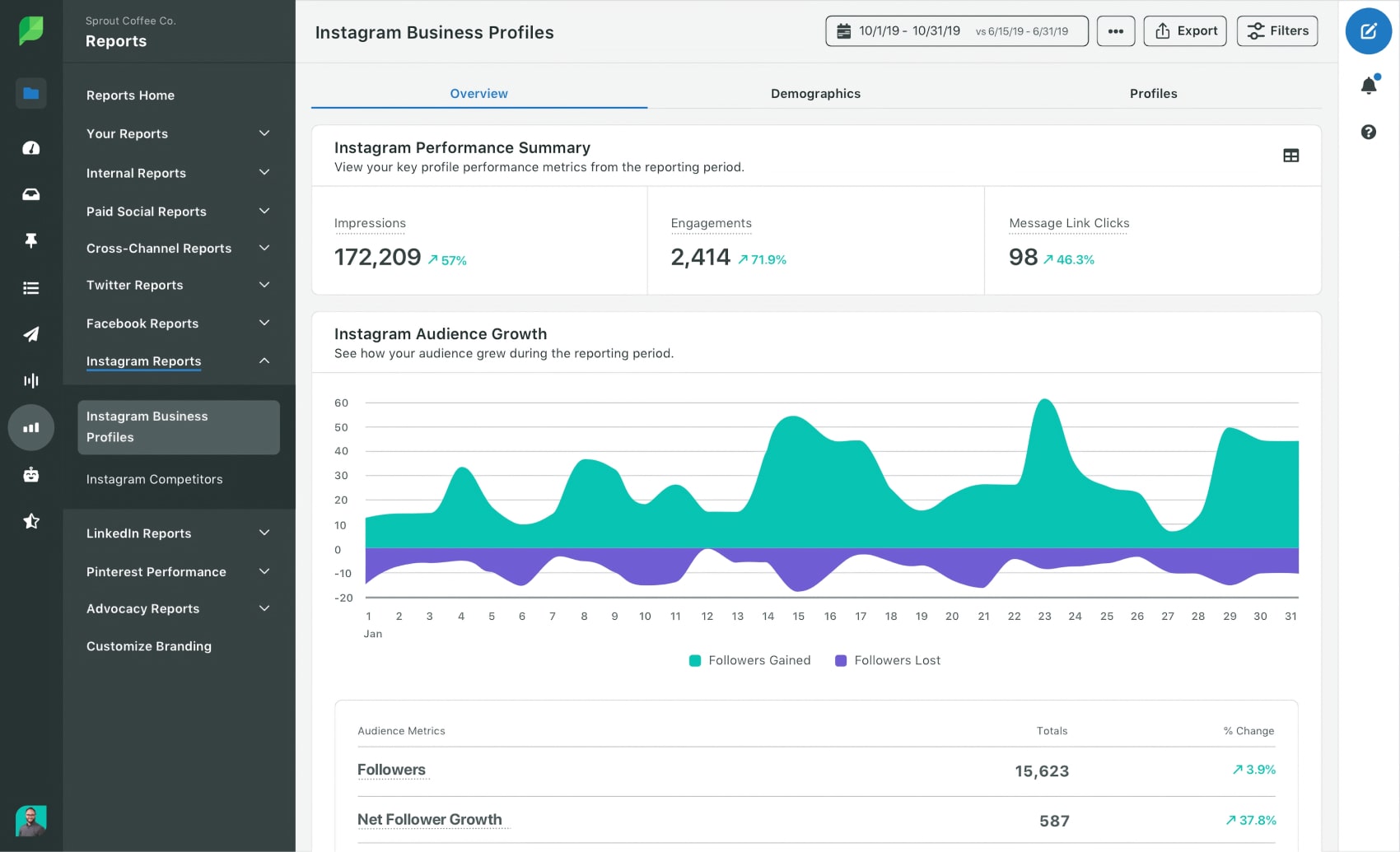
It offers a wide range of features to analyze your social media engagement, monitor conversations about your company, and even schedule and publish posts. It's a comprehensive tool that helps you stay on top of your social media game!
But, just like any other tool, it has its own ups and downs. Let’s take a look!
Pros:
Effective social media management. It provides advanced management functionality allowing you to monitor your performance across various platforms.
Allows tracking of social media campaigns. lt allows you to monitor conversations and mentions of your brand across social media platforms. With its help, you can easily stay on top, boost your online reputation and respond to customer inquiries or comments in a timely manner.
Cons:
Limited integration with Youtube, Tiktok, and Instagram. It has been noted that currently, the integration is made poorly and requires updates. Consequently, you may need to use additional services to analyze your performance on these platforms.
It is too expensive. With the lowest subscription plan starting at $249 per month, it has way too many more affordable alternatives.
Hotjar
As the company claims, it provides everything you ever wanted to know about your website, but your analytics never told you. Catchy, isn’t it?
As a matter of fact, it’s true! Hotjar is an amazing tool that helps you truly connect with your customers by providing behavior analytics and feedback data. It's like having a window into their world, allowing you to understand and empathize with their experiences.
It provides comprehensive webpages analysis. With Hotjar’s help, you can see a heatmap of your site, which shows more and less popular parts of your website. It enables a chance to collect live feedback and connect with users in a natural manner.
Traditionally, let’s summarize the overview with pros and cons.
Pros:
Comfortable pricing. Hotjar offers several subscription options. Apart from the free version (!), the cheapest starts at €32 per month, making it a little more expensive than Netflix.
Endless integration options. Hotjar simplifies a lot of work and eliminates the need for other software. Currently, you can integrate it with Slack, Hubspot, Google, Optimizely, and others.
Great visualization. With the help of an interactive dashboard, you can quickly learn how to use the platform and see the actual analytical insights in almost no time!
Cons:
No mobile app support. It may be temporary, but still, now Hotjar doesn’t cover mobile audiences, despite the fact that the lion’s share of Internet users are mobile ones…
No customization options. Currently, you cannot create custom reports to fit your needs. Also, surveys Hotjar provides are also quite limited and lack flexibility.
Design Tools
Speaking of design tools, it’s a narrow and quite subjective niche. Why? Well, It has numerous different tools. Consequently, people tend to use different software depending on their needs. Especially, with the understanding that the ‘design’ term itself is quite vast.
Nevertheless, there are a few solid tools that people use practically in every digital marketing agency.
Canva
It is an easy-to-use online graphic design platform that offers a wide range of templates and tools for creating stunning visual content. It's perfect for both design professionals and beginners, allowing you to customize designs with text, images, and other elements.
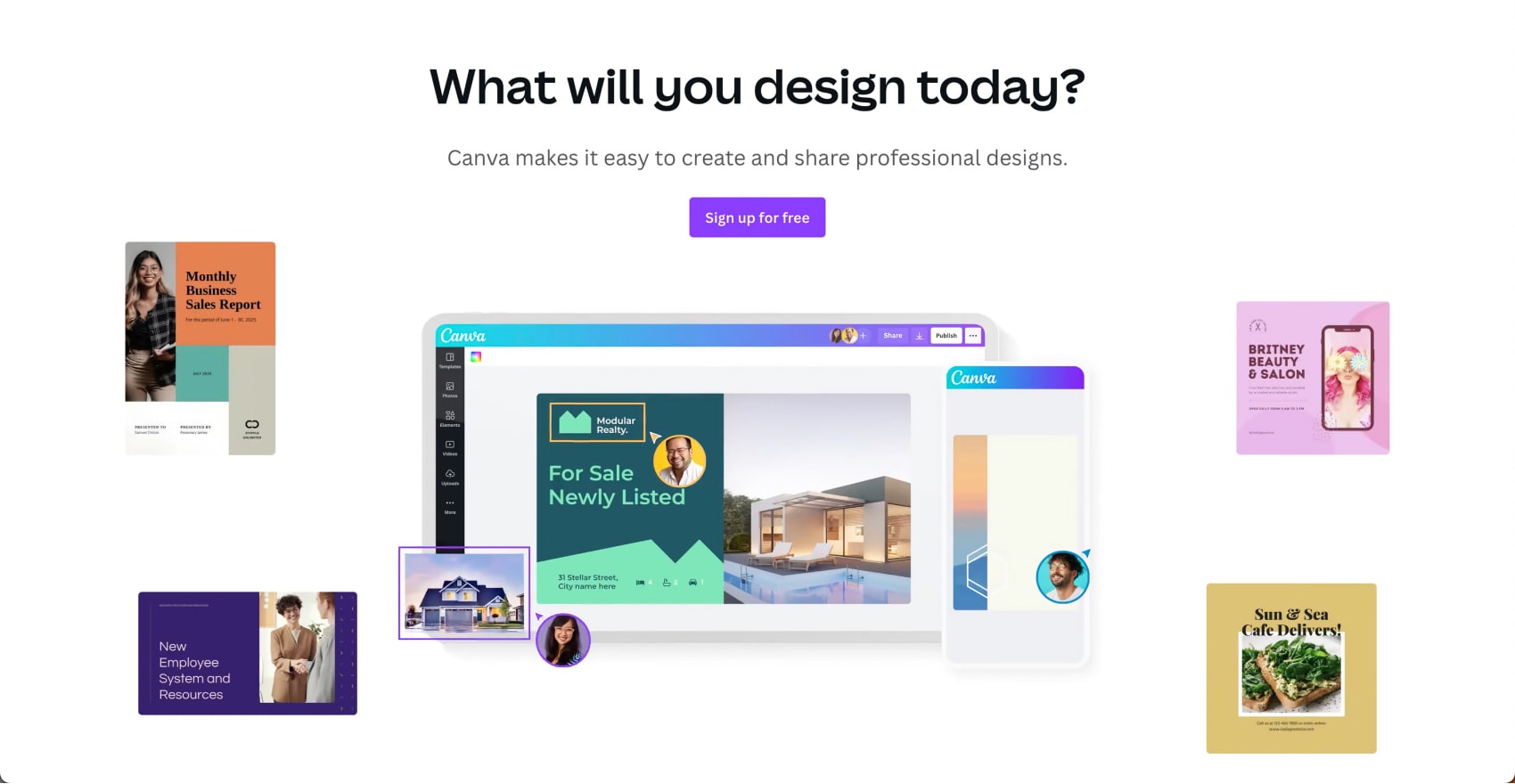
With Canva, you can create eye-catching social media posts, presentations, and marketing materials without needing advanced design skills or software expertise. However, being beginner-friendly, it lacks some advanced functionality available with other tools.
Canva is quite a controversial thing people tend to argue about. To be more specific, see for yourself after we outline its pros and cons.
Adobe products
Similar to Google apps united in Google Suite, Adobe has a Creative Cloud service providing software on a subscription basis.
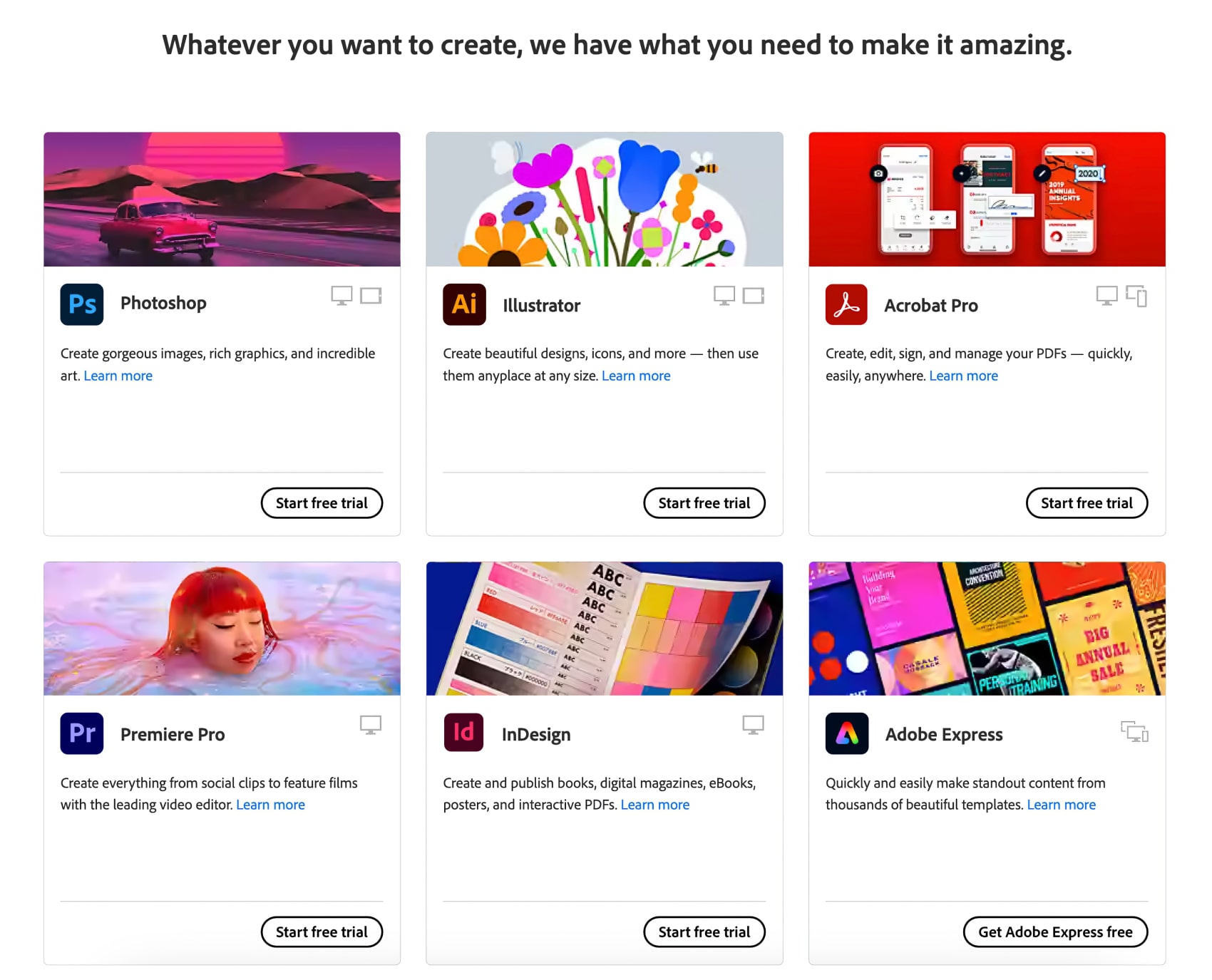
It includes many tools, but let’s take a look at the main ones.
Photoshop – This widely renowned raster graphics editor dominates the industry as the go-to tool for a vast range of tasks, from minor retouching adjustments to astonishingly creative photo artwork.
Illustrator – the second most popular raster graphics editor on Earth. It is used to create vector graphics which in turn, is used in every second banner, logo, or title.
Premiere Pro – one of the most known video editing apps on the web. It is used to edit footage and craft films, and videos.
Figma
There’s no digital marketing agency that doesn’t use Figma. Even if there is, they’re clearly missing something!
Figma is a handy online collaboration tool for designers. It is available on the web or as a downloadable app. Figma offers a very complex functionality: everything from simple sketches to extensive design projects, prototypes, and MVPs.
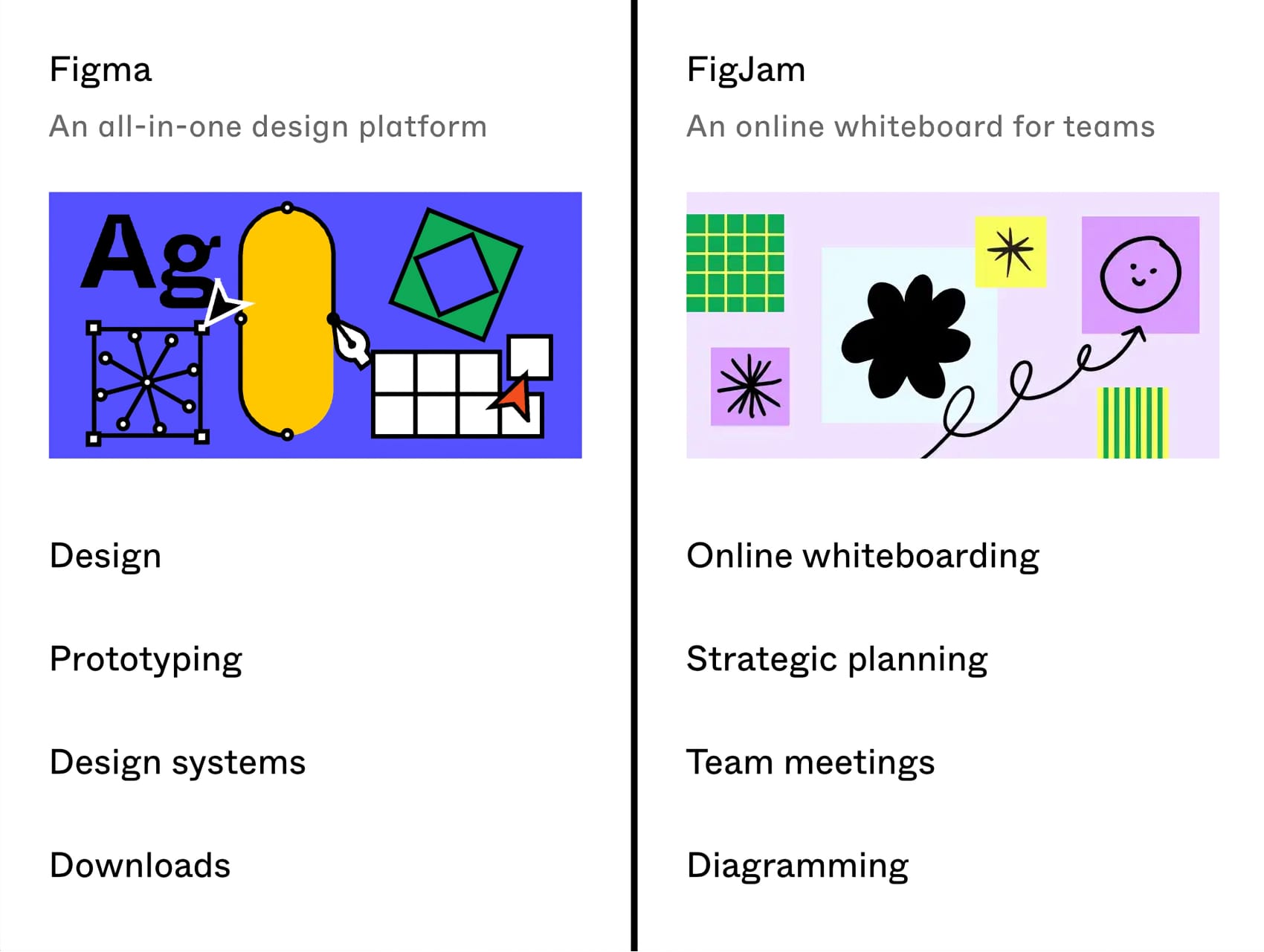
For more understanding, the platform offers two separate products: Figma and FigJam, and here is the comparison.
| | Figma | FigJam |
| Purpose | Design tool for UI/UX, prototyping, and interactive designs | Collaborative whiteboarding tool |
| Collaboration | Real-time collaboration with multiple team members | Real-time collaboration for brainstorming and visualizing ideas |
| Design Features | Vector editing, layout design, prototyping, design components | Sticky notes, shapes, drawing, images |
| Templates | Various design templates and resources available | Pre-built templates for brainstorming and planning |
| Communication | Comments, version history, design sharing, commenting | Live cursors, comments, emojis, voting, timers |
| Integration | Integrates with other design and development tools | Seamless transfer of ideas to Figma design files |
| Accessibility | Accessible through web browsers on different operating systems | Accessible through web browsers on different operating systems |
| Usage | UI/UX designers, product teams, developers, collaboration across teams | Collaboration for brainstorming, planning, and idea visualization |
| Workflow | Comprehensive design process from ideation to final designs | Visual collaboration and idea generation |
Bottom Line
The time for a bottom line has come. Along with it, it’s time to finally admit that it’s absolutely possible to start a digital marketing agency without any experience.
To do so, you’ll need to learn a lot of things, though. For instance, you will need to understand the theory: how everything works, what agency types are, and how to work with analytics. Along the way, you will need to learn hard how to develop a business model, plan the pricing, compose a professional team, and spread your presence online.
However, the good news is that it’s absolutely doable! In addition, it is even more doable with the right learning plan, and we are here to encourage you to try planning your digital marketing agency starting with Loopo!

